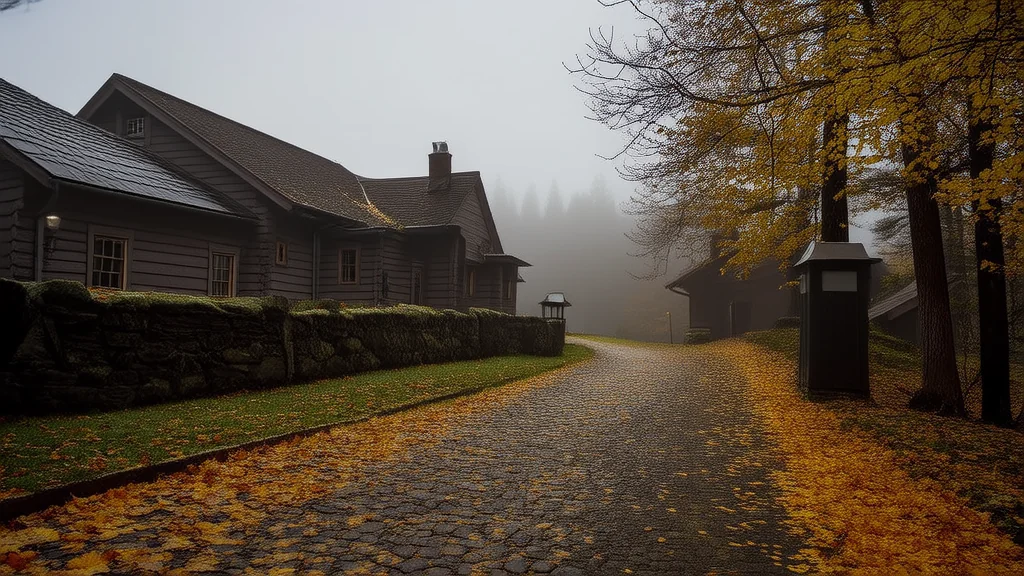🔮 Weird Tales & Urban Legends
The Silent Hills of Elmsworth and the Vanishing Children

The town of Elmsworth was quiet, nestled between two hills that seemed to watch over it like old sentinels. It wasn’t a place people talked about much, unless they were locals who had grown up with its peculiarities. The roads were narrow and winding, and the houses leaned slightly, as if tired from years of holding on. But what made Elmsworth truly strange was the silence that followed every disappearance.
It started with the children. A boy named Eli went missing one summer evening, his bicycle found leaning against the old oak tree at the edge of the woods. No signs of struggle, no footprints, just the lingering scent of pine and something sweet, like burnt sugar. The townspeople searched for days, but he was never found. Soon after, another child vanished—Lila, who had been walking home from the library. Her backpack was left by the sidewalk, untouched, as if she had simply stepped into the air and disappeared.
The stories spread slowly, whispered in hushed tones at the diner or behind closed doors. Some said the woods were cursed, that the trees held secrets older than the town itself. Others claimed it was the work of a ghost, an old woman who had once lived in the abandoned house at the top of the hill. No one knew for sure, but the disappearances kept happening.
One autumn, a man named Thomas moved into the town. He was a writer, or so he claimed, looking for inspiration in the quiet life. He rented the old farmhouse on the edge of the woods, the same one where the last child had been seen before vanishing. The locals gave him wary glances, but he didn’t seem to mind. He spent his days wandering the fields, sketching the landscape, and talking to no one.
Thomas began to notice things. The wind would shift suddenly, carrying the sound of laughter that wasn’t there. At night, the trees creaked as if whispering. One morning, he found a small silver key on his porch, lying beside a note written in a strange, looping script. The note read: *“They are not gone. They are waiting.”*
He tried to ignore it, but the more he thought about it, the more he felt drawn to the woods. He started walking there each evening, following the same path the children had taken. The deeper he went, the more the air changed. It became heavier, almost tangible, and the light dimmed even though the sun was still high in the sky.
One day, he stumbled upon a clearing covered in moss and wildflowers. In the center stood a stone circle, weathered and ancient. As he approached, the temperature dropped, and a soft hum filled the air. He could feel something watching him, not with eyes, but with presence. He reached out to touch the stones, and the moment his fingers brushed the surface, the world around him shifted.
He saw them—children, standing in a circle, their faces pale and serene. They didn’t move, but they were there, as if caught in a moment that had never ended. Then, just as quickly as it came, the vision faded, and he was back in the clearing, alone.
Thomas returned to the town, shaken but determined. He wrote about what he saw, but the townspeople didn’t believe him. They said he was just imagining things, that the woods played tricks on the mind. But he knew better. He had seen them, and he knew they weren’t lost. They were waiting.
Weeks passed, and Thomas began to hear the whispers again. This time, they weren’t just in the woods. They were in his dreams, in the silence between heartbeats. He started to feel lighter, as if something inside him was unraveling. One morning, he was found sitting on the porch of his house, staring at the woods, his hands empty, his eyes vacant.
The town buried him without ceremony, and the stories continued. New people came and went, but the disappearances never stopped. And sometimes, when the wind blew just right, you could swear you heard the laughter of children, carried on the breeze, calling from the trees.
No one knows where they go, or why they stay. But the woods remain, silent and watching, holding their secrets close, waiting for the next soul to wander too far.
Published on en
🔗
Related Sites
- AI Blog — AI trends and tech news